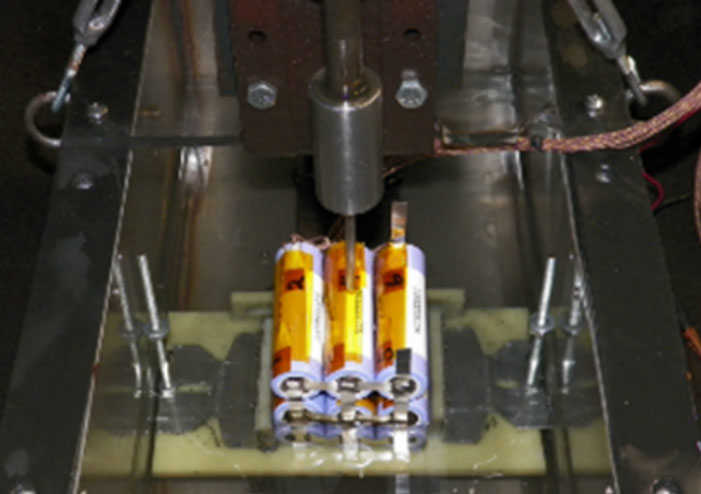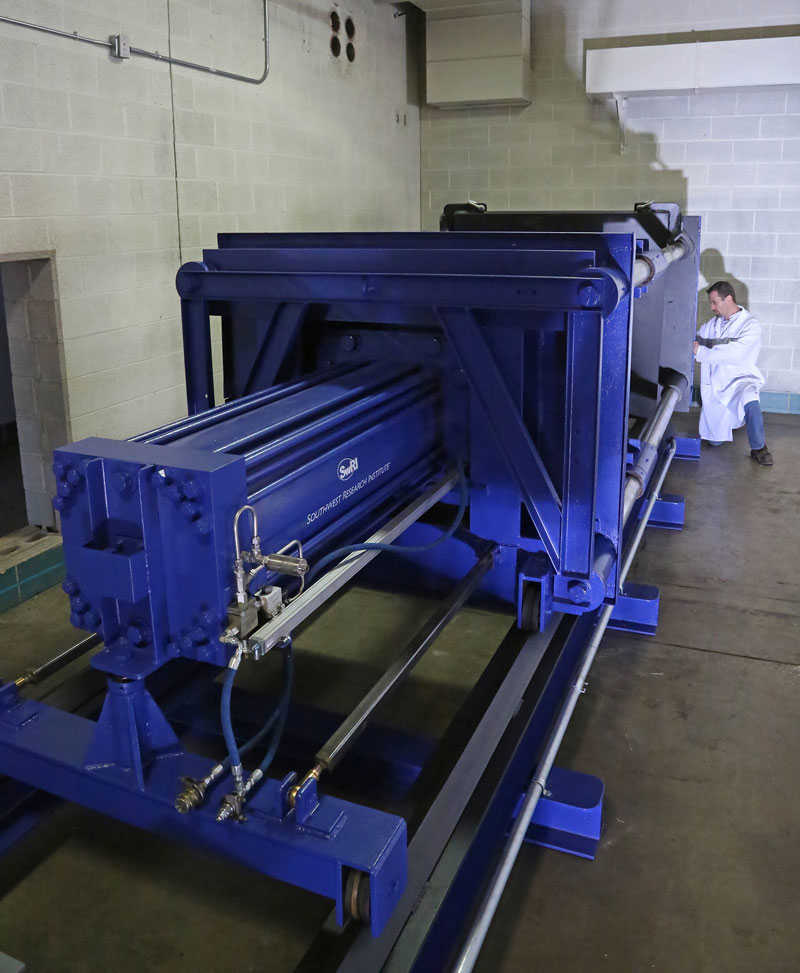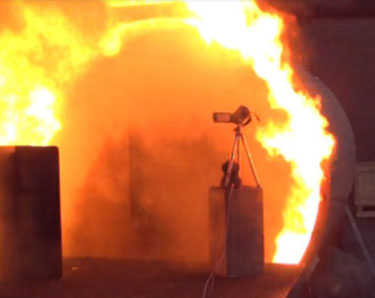
SAE J2464 nail penetration testing.
As the demand for electric and hybrid electric vehicles surges, understanding the response of their rechargeable energy storage systems (RESS) to adverse conditions becomes paramount. There is a responsibility to guarantee the safety of these systems, not only for daily operation but also in the face of unforeseen events or challenging environments. Fire hazards, thermal runaway and other risks associated with energy storage systems must be thoroughly understood and mitigated to ensure public safety and prevent costly incidents.
The SAE J2464 standard, developed by the Society of Automotive Engineers (SAE), addresses this need by defining a comprehensive set of tests that simulate a variety of real-world automotive scenarios, ensuring a thorough assessment of the RESS under different conditions. Southwest Research Institute (SwRI) is equipped with state-of-the-art equipment and staffed by experts in energy storage safety to perform all the below SAE J2464 tests as well as customized developmental testing.

SAE J2464 crush test rig.
J2464 Test Methods
The SAE J2464 Electric and Hybrid Electric Vehicle Rechargeable Energy Storage System (RESS) Safety and Abuse Testing standard provides a framework of tests that may be used to assess the RESS abuse response in electric or hybrid vehicles. Our goal is to not only ensure compliance but to help the customer exceed safety standards and excel in the market. The tests encompass a broad range of vehicle applications and various electrical energy storage devices, including individual cells, modules, and packs. SwRI can perform all the below tests from SAE J2464 and can assist clients with developmental testing if modifications to the test standard are desired.
Hazardous Substance
| Mechanical Abuse
|
Thermal Abuse
| Electrical Abuse
|

Large-scale thermal runaway demonstrated with SAE J264 overcharge testing.
With a world moving rapidly towards sustainable energy solutions, demonstrating the utmost commitment to safety through rigorous testing will set your business apart as an industry leader.
Contact Parker Smith or call +1 210 522 5571 to learn more about how SAE J2464 testing can elevate your energy storage systems and pave the way for a safer, more sustainable energy future.

